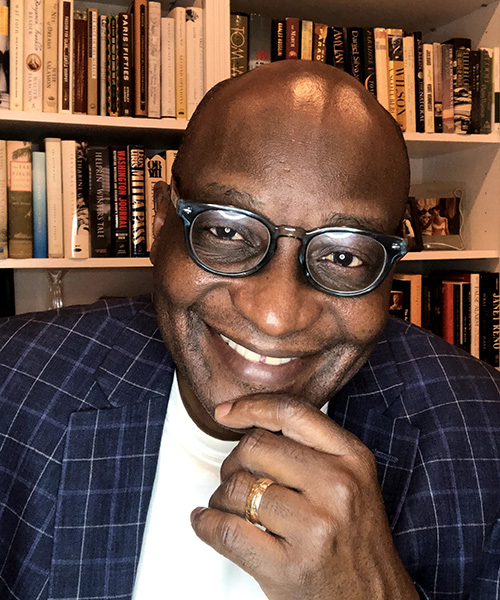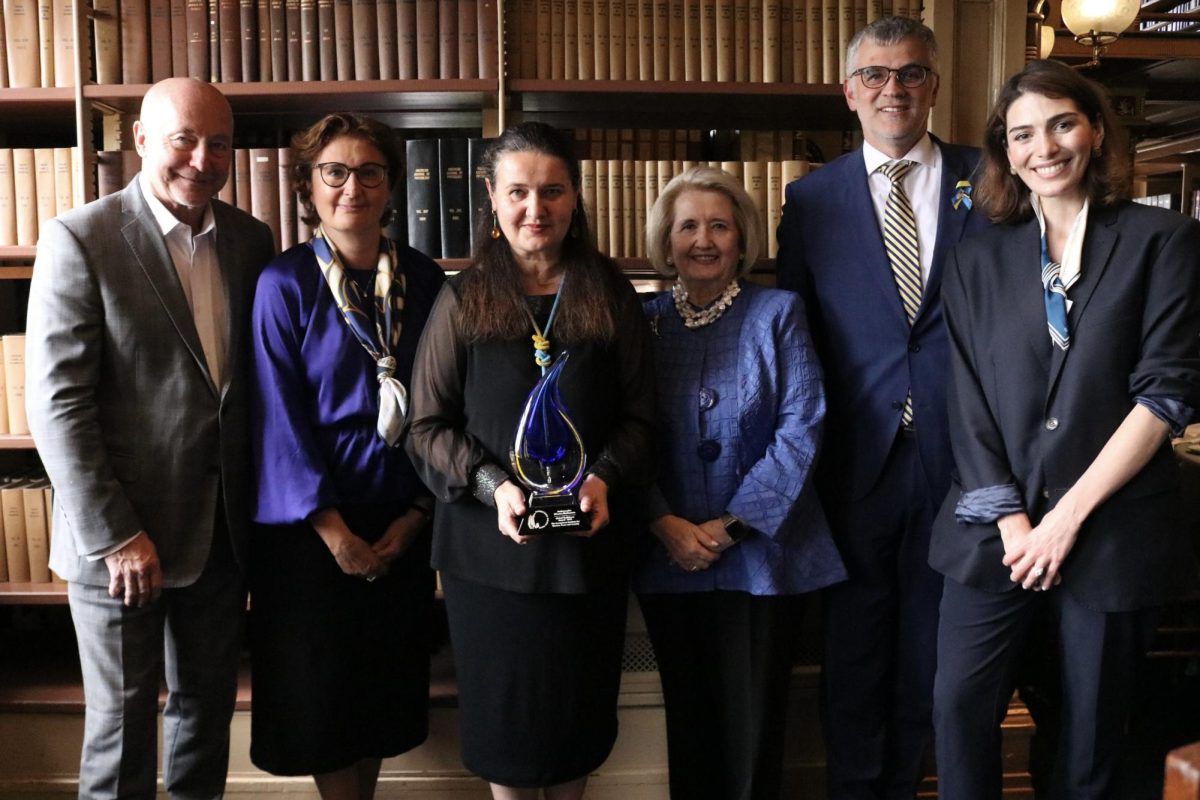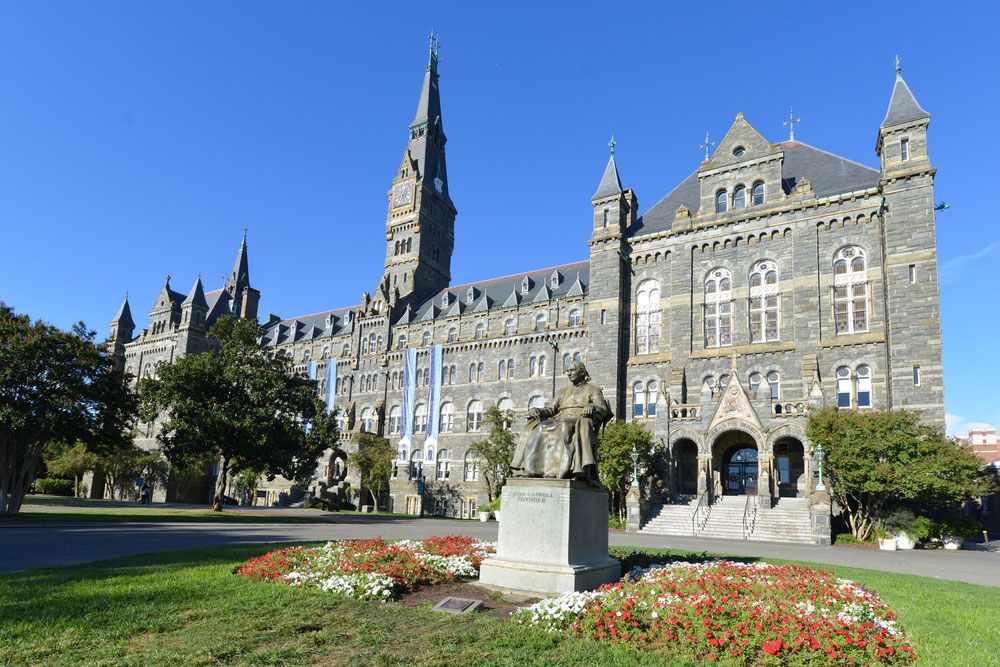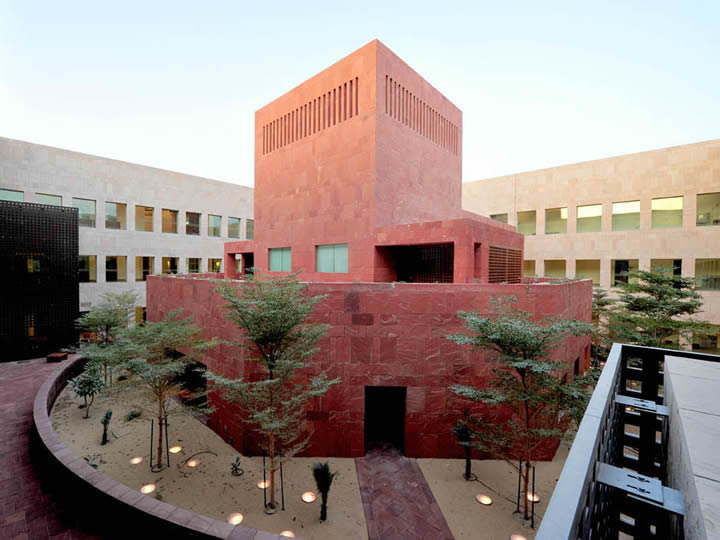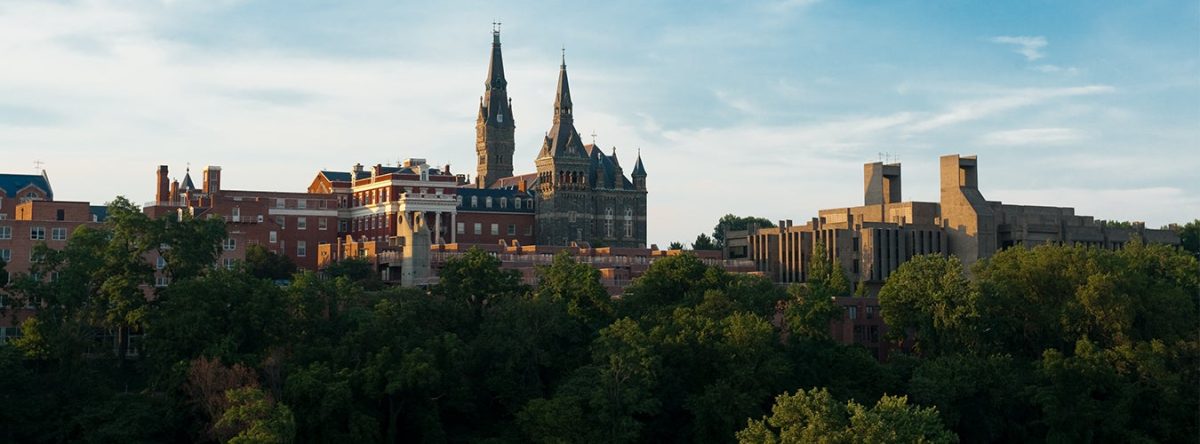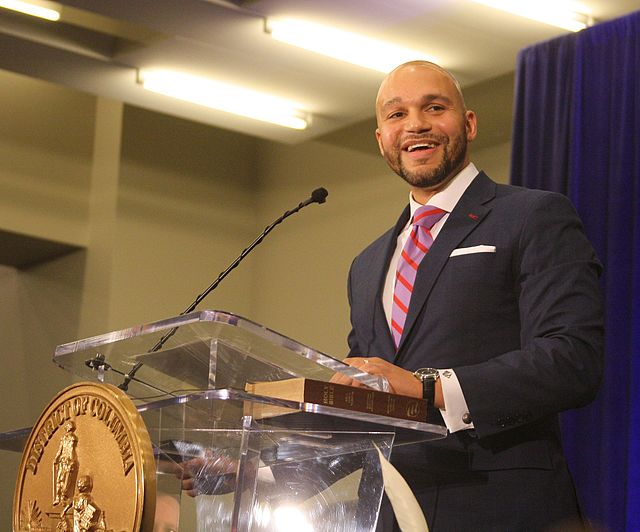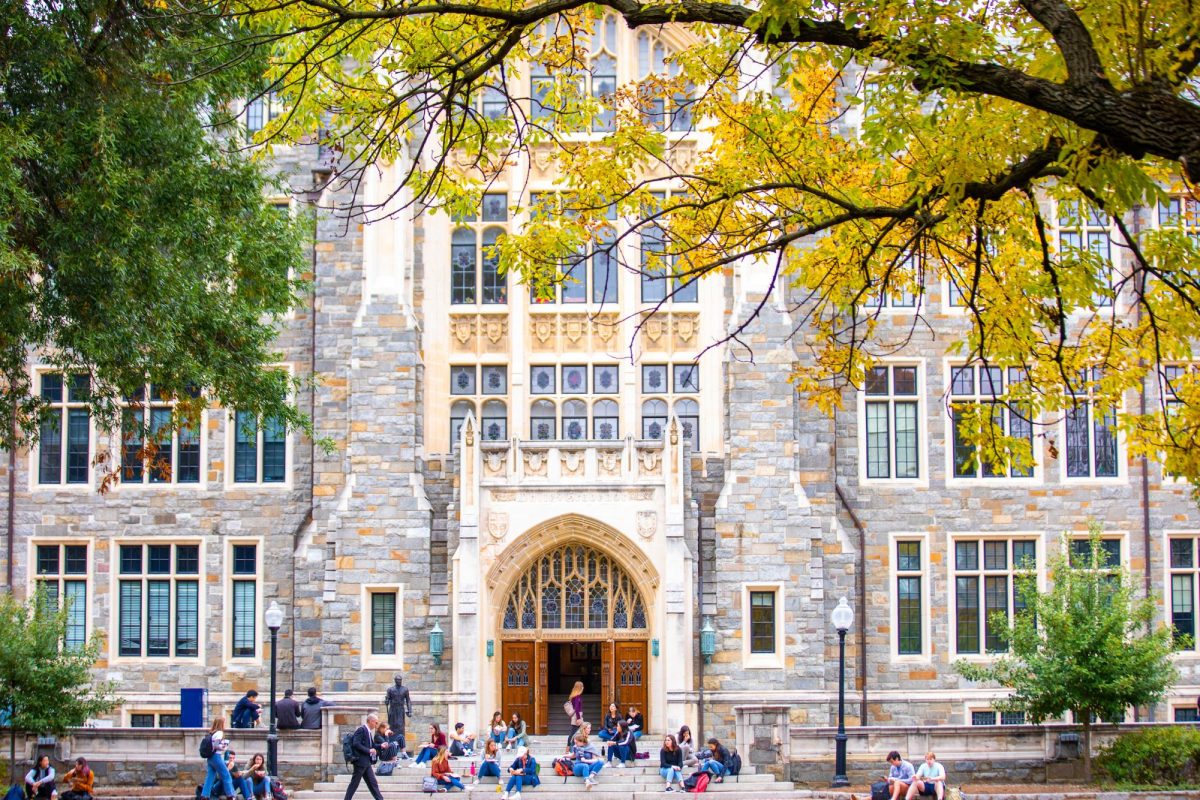Three Georgetown University professors received the annual Magis Prize, a research award for recently tenured professors, the university announced Oct. 1.
The Magis Prize, which includes a $100,000 grant and two semesters of dedicated research time over the course of three years, focuses on providing funding and time for early-career associate professors whose research has a significant impact and involves undergraduate students. This year’s awardees include Ian Lyons, a psychology professor; Blythe Shepard, a human science professor; and Andrew Zeitlin, a professor in the McCourt School of Public Policy studying and developing approaches to improve learning practices in Rwanda.

Shepard said she looks forward to utilizing the two semesters of protected research time to mentor undergraduate students in a lab setting, a core goal of the Magis Prize, without having to also juggle teaching and grading coursework.
“This is an opportunity for me to not only support the students that I do have in the lab, make sure that they maybe can graduate with a scientific publication, but I can also be taking on more students and mentoring those younger students,” Shepard told The Hoya. “Especially with the protected time, it will give me the ability to really train the younger students with the hope that then they can stay in the lab for a number of years.”
Shepard — who is researching an understudied subclass of G protein-coupled receptors (GPCRs), a common protein researchers have used to develop inhalers and drugs targeting metabolism, in the liver and kidney — said she had to explain her research in lay terms so that the panel would understand and be excited about it.
“Normally when you write a grant, like a scientific grant, you’ve got to be really detailed,” Shepard said. “You have to provide a lot of preliminary data. You have to write it because you need to be an expert, seen as an expert in the field and it’s reviewed by a lot of leading experts. With this Magis prize, I know it was reviewed by people that are in the field, but it was also being reviewed by a large lay audience.”
“That was a huge challenge to write this in a way that allowed for me to communicate the importance of the work without hopefully trying to oversell it or undersell it,” Shepard added.
Lyons, who is the principal investigator of the Math Brain Lab, which studies the cognitive science of mathematical thinking, said he has been developing theories on people’s aversion or avoidance of math as they get older, examining the phenomenon of “math anxiety” and trying to determine the root cause.
“We’ve been interested in math anxiety, but over the years, what has sort of emerged is a lot of these theories, these ideas about, ‘How does math anxiety operate in the moment and how does it operate over time?’” Lyons said. “This notion of avoidance, this choice — ‘Do I engage or not engage?’ — has emerged as this piece that we all assume is there, but the actual clear hard evidence — can we see the smoking gun empirically — that’s what we’re really missing in the literature.”
Ginny Marshall (CAS ’29), a student who decided against taking a math course since arriving at Georgetown, said she looks forward to seeing the findings of Lyons’ research, noting the importance of taking a diverse range of subjects in becoming a well-rounded student.
“I think the study is important to the global development of mathematics,” Marshall wrote to The Hoya. “If students are apprehensive about pursuing math in college due to a fear of failure, then the mathematic field will eventually be homogenized. As with all academic communities, the benefit of a diverse range of scholars who possess different strengths is crucial to the success and progression of the field. Personally, I chose against taking higher level math in college.”
Shepard said the Magis Prize comes as associate professors have less time to devote to their research because they teach more, so the award allows them to focus more on research, setting them for long-term success.
“I think they strategically pick newly promoted faculty because there’s evidence, at least in the sciences, that faculty have a lot of support when they’re just starting out, then they lose that support,” Shepard said. “They get the promotion, which is fantastic, but then the teaching load goes up, you have less time to devote to your research, and it kind of stalls a little bit.”
“I would speculate the Magis is somewhat designed with that in mind to keep the momentum going so that this is not just the ending, but the beginning of something,” Shepard added.


